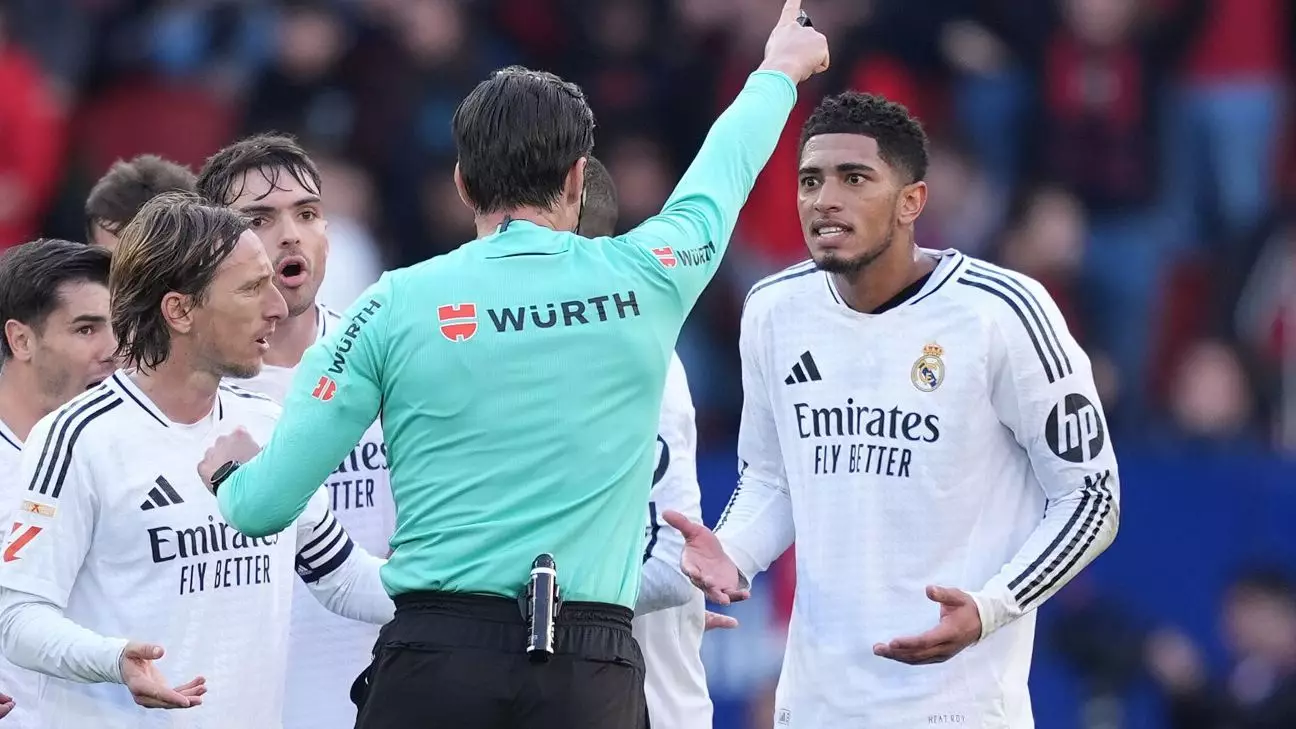Recent events in La Liga have put a spotlight on the ongoing issues faced by referees in professional football, particularly in Spain. A controversial red card issued to Jude Bellingham, Real Madrid’s rising star, by referee Jose Munuera Montero during a match against Osasuna has ignited a firestorm of discussion regarding the rampant verbal abuse and threats faced by match officials. Montero, believing that the 21-year-old midfielder used foul language towards him, took decisive action that has since been labeled a “misunderstanding” by Bellingham and coach Carlo Ancelotti. These developments bring to light not just the complexities of officiating in high-stakes sports, but the disturbing culture of harassment that referees endure.
In an official statement, the Royal Spanish Football Federation (RFEF) strongly condemned the online harassment directed at Montero, underscoring the psychological toll such abuse can take on referees and their families. The expressed sentiments reveal a troubling trend where match officials often find themselves on the receiving end of hostility, which escalates to threats made via social media. Such incidents are not isolated; they reflect a broader climate of “hatred and verbal violence” that permeates professional sports, making the job of refereeing increasingly perilous.
The federation highlighted that weekend matches not only involve verbal abuse but, in some instances, physical confrontations, especially at lower levels of the sport. This systemic issue raises significant concerns over the safety and mental well-being of referees. The repercussions extend beyond mere insults, marking a worrying shift in how sportsmanship is perceived and practiced today.
Bellingham’s defense of his actions on the pitch adds layers to this complex narrative. The midfielder articulated that, as an English player, the expressions he uses may not necessarily translate to offense in the context of Spanish football culture. He insists that his remarks were not intended for the referee but were more of a self-directed expression in the heat of the moment. This perspective invites a crucial discussion about the nuances of communication in sports, particularly in multicultural environments where language and expressions can often be misinterpreted.
As Bellingham navigates the fallout from the incident, it raises questions about the standards of evidence and accountability in officiating decisions. Should players be held to stricter penalties for their words, or should there be allowances made for cultural differences in expression?
What this controversial episode truly illustrates is a need for reform at various levels within football. Acknowledging and addressing the abuse referees face is critical not only for their professional dignity but also for the overall integrity of the sport. Efforts should be initiated to create safe reporting mechanisms for referees, alongside educational programs aimed at players, officials, and fans about the importance of respectful conduct.
By focusing on fostering a culture of respect and understanding, the football community might mitigate the hostility that has become so prevalent. Moving forward, actions must be taken to safeguard the welfare of match officials to ensure that the focus remains on the game itself rather than the detracting narratives surrounding it. In an age where dialogue is more important than ever, it is imperative that every voice—be it of a referee or a player—is heard without fear of abuse.

Leave a Reply